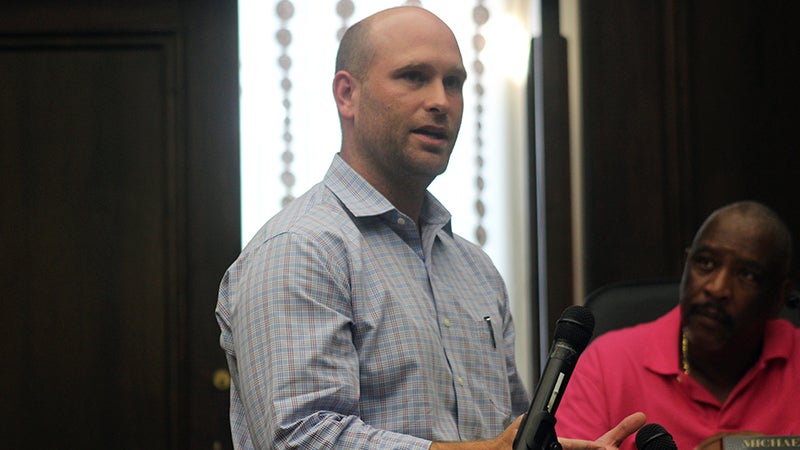Council seeks compromise over county jail lease
Published 8:08 pm Monday, August 12, 2019
During its work session Monday, the Selma City Council again took on the issue of its lease with the Dallas County Jail, which is up for renewal at the end of the year.
Currently, the city pays the county $200,000 annually for housing city inmates and the county picks up the tab for any medical expenses the inmates might incur while in custody – the latest proposal from the county will likely include the cost of medical expenses, as well as the cost of the 16 beds reserved for Selma detainees.
City attorney Woodruff Jones stated that he is currently working to reach a compromise on the price of the services, which may require that the city’s bed allotment be dropped from 16 to eight.
Selma City Councilman John Leashore recommended that inmates in need of medical attention be released, but Jones feared that the county would not be on board with such a proposal
Selma City Councilwoman Miah Jackson had previously asked for data on how much was spent for medical care and how many beds were regularly used for holding Selma inmates, but Jones said no information was currently available.
For her part, Jackson opined that the city could use as little as four beds in the county jail.
Further, Jackson wondered what other cities in Dallas County, such as Valley Grande and Orrville, pay for the county’s jail services – Jones states that since neither municipality operates a municipal court, inmates from those areas go directly to the Dallas County Jail at no cost to the cities.
“Selma’s paying for everybody,” said Selma City Councilwoman Angela Benjamin.
Selma City Councilwoman Susan Youngblood wondered why the city didn’t simply reimburse the county for the cost of detentions, as is customary in relation to state and federal inmates, rather than being held to a “more stringent standard.”
“Why aren’t we being held to the same standards they are?” Youngblood wondered. “I think that’s a pretty good question.”
Jones also stated that issues of weed abatement are currently at an “impasse,” as there is currently no one available to pursue the process required to force a landowner to address their overgrown property.
Benjamin pushed back, stating that Michael Goins is the person currently tasked with handling that responsibility, but Jones noted that, even if that’s the case, he has no power to force Goins to pursue any action.
“The process is broken,” said Leashore. “I don’t know what the answer is, I really don’t.”
Elsewhere in the meeting, Alfred Morelock stated his interest in selling 31 acres to the city to be used to expand the landfill.
Morelock owns the property, which abuts the landfill, and said that he is willing to sell it at below market price.
Morelock said the purchase would ensure that the city doesn’t have to worry about overfilling the space for the next 10 to 15 years.
“This is in the city’s best interest, I think,” Morelock said.
Selma City Councilman Michael Johnson wondered aloud if the city would need to contact nearby landowners that might not want the landfill to expand closer to their property.
“Before we move forward, we need to see what we can do and what we can’t do,” Johnson said.






